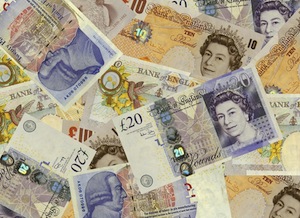According to an extended report in The Guardian newspaper on Friday, fixed odds betting terminals in bookmakers’ shops in the UK are a primary channel for laundering money for drug dealers.

The newspaper quoted the Gambling Commission admitting recently that FOBTs represent a “high inherent money laundering risk” and interviewed drug dealers on how they use the machines. Apparently they bet on the roulette games in the terminals, placing £20 on red, the same on black and £2 on zero. They then cash out after a few plays. The result is they can carry around large sums of cash but with receipts to show that they had successfully gambled, just in case they are stopped by police.
Britain’s 33,000 FOBTs have been under some scrutiny in the past few months, with a freeze placed on any rises in stakes and prizes while the Gambling Commission has raised levels for other forms of machines. The Commission said that it was taking time to review FOBTs further.
The Guardian investigation reported that in some bookmakers’ shops it was possible to convert winnings directly on to a debit card. In essence a drug dealer was paying five per cent to 10 per cent to betting shops to launder illicit profits from drugs.
The newspaper suggested that as FOBTs contributed £1.4bn to the bookmaking industry’s bottom line in 2012 the business may have “played down the shadier side of the terminals.”
And in yesterday’s Daily Mail, a publication known for its adverse editorial stance against gambling of all forms, FOBTs were described as “a social cancer.” It called on the UK government to cap the stake on an FOBT at £2 per game, the same as on other gambling machines in the UK. It also quoted the Association of British Bookmakers as threatening that if curbs are placed on FOBTs it would put 40,000 jobs and 8,000 bookies’ shops at risk.

